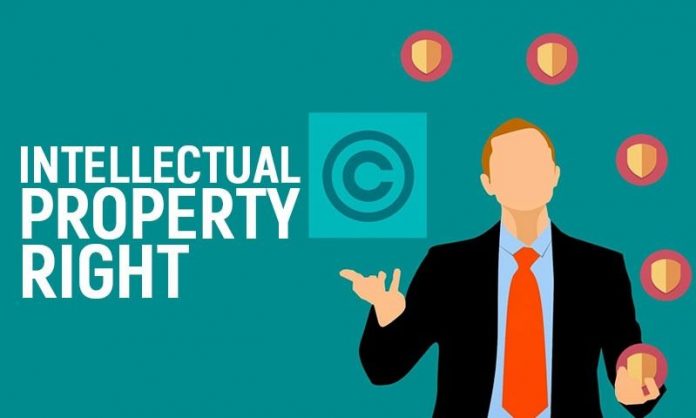This article is authored by Akash Krishnan, a law student from ICFAI Law School Hyderabad. It discusses in detail the important facets of law that an individual should acquaint himself with before building a career in international IPR and the various career opportunities available in the global IP market.
Table of Contents
Introduction
With the advancement of the technological age, innovation and creativity are at their peak. If an individual possesses the qualities of creativity and innovation, then the doors for building wealth and fortune open up. Intellectual property is the part and parcel of the daily life of human beings. The important feature of intellectual property is that it insists on originality, novelty, or distinctiveness to gain protection. Rights in Intellectual Property are created and protected by the laws or statutes made based on the international conventions, treaties, and agreements from time to time.
In this article, we will be discussing various options to pursue an international career in intellectual property rights. We will also be looking into some details of the process through which an individual can make a mark in this field in international organisations like WIPO and different IP law firms globally.
The differentiating factor
When you are graduating out of law college or when you are thinking of changing your job or career while working in the corporate sector, one question you should always ask yourself or which you should always think in your mind is first, which is the best career option for me and second, in a country like India, where we have a large volume of students who graduate every year, it is very important to differentiate yourself from the rest of the crowd. How does one stand out of the crowd and how does one attract the attention of recruiters? Let us try and find answers to these questions
Reputed international research journals in IPR
There are multiple international research journals that accept research papers and articles by Indian students and publish them. The experience of writing and publishing papers in international journals will not only enhance your skills but will also help in boosting your resume for LLM applications abroad. A few of these journals are enumerated below:
- Australian Intellectual Property Journal
- CIPA: The Journal of Chartered Institute of Patent Agents
- European Intellectual Property Law Review
- International Journal of IP Management
- WIPO Magazine
LLM in IPR
An LLM in IPR from a reputed university abroad is one of the first steps that an individual can take towards building an international career in IPR. International universities offer a wide range of opportunities through which an individual can easily shape his career and achieve growth at an exponential rate. Let us now discuss the top 2 IP Law schools for LLM according to the listings of the LLM Guide.
Turin School of Development, Italy – WIPO Worldwide Academy
The Masters in IP law course offered by this university is a distance learning cum residential course. The tenure of this course is 12 months and the intake in the program is limited to 40. Scholarships are also provided by the university.
Entry Requirements
- A bachelor’s degree in law, economics, engineering, medicine, physics, chemistry, communication sciences or business administration.
- Bachelors’ degree should be of minimum 3 years.
- A TOEFL score of 80 out of 120 or an IELTS score of 6.5 out of 9.
George Washington School of Law, USA
The LLM in IP law offered by this university includes over 20 individual subjects and spans over a period of 12 months. It is a full-time residential program. The intake in this program depends on the availability of seats and the number of applications received each year. Scholarships are also provided by the university.
Entry Requirements
- JD or equivalent degree in law for US-based students.
- For non-USA based students, an IELTS score of 7.0 and over or a TOEFL score of 600 or above in a paper-based test or a score of 100 or more in the internet-based test.
IPR in the international regime
International trade and IPR always go hand in hand. If you want to pursue a career in IPR, you should be well versed with the international statutes that govern intellectual property and how these statutes impact international trade. A knowledge of these statutes is necessary to understand the global IP scenario. Broadly, these statutes can be classified into three groups which are as follows:
Intellectual property protection
This group of conventions, treaties, and agreements contain internationally agreed basic standards of intellectual property protection. These treaties include:
- Beijing Treaty on Audiovisual Performances, 2012
- Berne Convention, 1886
- Brussels Convention, 1974
- Madrid Agreement, 1891
- Nairobi Treaty, 1981
- Paris Convention, 1883
- Patent Law Treaty, 2000
- Rome Convention, 1961
- Singapore Treaty on the Law of Trademarks, 2006
- Trademark Law Treaty, 1994
- Washington Treaty, 1989
- WIPO Copyright Treaty (WCT), 1996
- WIPO Performances and Phonograms Treaty, 1996
Global protection system
This group of treaties and agreements deals with the procedure for filing international applications of patents, trademarks, copyright etc. These treaties and agreements provide the step-by-step process for international intellectual property filing and also help in reducing the costs of IP filing as protection in all party states can be granted via a single application and there is no need to file individual applications in different countries. These treaties include:
- Budapest Treaty, 1980
- Hague Agreement, 1925
- Lisbon Agreement, 1979
- Madrid Agreement, 1979
- Madrid Protocol, 2007
- Patent Cooperation Treaty (PCT), 1970.
Classification
These agreements categorise the information relating to inventions, trademarks, and industrial designs. These include:
International Institutions governing IPR
World Trade Organisation
The World Trade Organisation is a specialized international institution that governs and lays down uniform rules for international trade. The World Trade Organization mainly aims at creating a healthy competitive environment among countries that are just, fair and equitable. The WTO through the Agreement on the Trade-Related Aspects of Intellectual Property Rights (TRIPS), introduced the concept of IPR in international trade. This agreement establishes the minimum standards of protection that each member state has to provide to other member states regarding the protection and enforcement of their intellectual property. It also plays a significant role in resolving disputes regarding IPR that occur during the course of international trade.
World Intellectual Property Organization (WIPO)
World Intellectual Property Organization (WIPO) is the most important international organization which promotes and protects intellectual property globally. Before the establishment of WIPO, intellectual property rights were governed by the United International Bureau for the Protection of Intellectual Property (BIRPI). WIPO is the successor of BIRPI and the Convention establishing WIPO came into force in 1970.
A plethora of opportunities in international IPR
There are endless opportunities available in international IPR. You can attempt to establish a career as an associate/agent in WIPO, WTO, International Chamber of Commerce, multinational product development companies, hospitals, pharmaceuticals, R&D Labs, international law firms etc or set up your own independent litigation practice, IP law firms etc.
According to the press release by WIPO, in 2019, over 3.2 million patent applications, over 11.5 million trademark applications, 1.3 million industrial design applications, and over 21,430 new plant variety applications were filed worldwide. An overall growth rate of 15% was recorded in IP filings from the year 2018. This data clearly indicates the scope of growth in the IP sector.
Careers at WIPO
WIPO is a specialized unit of the United Nation agency and having an opportunity to work at WIPO is a matter of dignity and pride. WTO hires staff on a contract basis. The manner of hiring has been enumerated below:
Fixed-Term
Initially hired for 1-2 years that may be extended based on the needs of business and performance of the individual.
Temporary Term
Hired for a period of 1 year but maybe extend to 2 years based on performance and other factors.
Staff roles at WIPO
Professional Staff and Directors
- They are internationally recruited professionals who possess management and functional skills, and also a significantly higher degree of professional expertise and knowledge.
- Job Categories: Legal, program information, human resource management, IP processing, etc.
General Service Staff
- They are professionals with technical knowledge related to the administrative, legal and other functions of the organisation.
- Job Categories: Legal, finance and administration, information and communications technology, patent and trademark processing.
National Professional Officers
- These professionals are locally recruited to the Non-HQ offices that are present in different countries.
- Job Categories: Legal, financial management, communication, public information, economics, statistics, etc.
Benefits of joining WIPO
The starting salary for a Professional Level-1 employee is around $43,371 annually. This pay scale increases to over $107,459 with time.
Other benefits include dependency allowance, education grant for schools, insurance, maternity/paternity leaves, travel expenses, rental subsidy etc.
Career opportunity in foreign countries
United States of America
Patent attorney
In the US, the procedure to accredit a patent attorney is guided by provisions of the United States Patent and Trademark Office (USPTO). To become a patent attorney in the USA an individual needs to have a degree in law from any of the U.S law schools as well as a background in science or engineering. Also, there is a patent bar examination which the applicant needs to pass to be accredited as a patent attorney.
The major responsibilities of a patent attorney are drafting, preparing and filing patent applications for clients. Also, they are responsible to make follow-up inquiries on the patent applications filed by them. They also advise the clients on the patentability of their inventions.
The average starting pay for a patent attorney is $138,054. On the lower end of the pay scale, attorneys make $82,000 and at the high end of the pay scale, patent attorneys make up to $204,000 per year.
Patent examiner at the USPTO
A patent examiner is a skilled engineer or a scientist who facilitates the patent filing process and determines whether or not a patent should be granted. For becoming a patent examiner one must be a US citizen and should possess a bachelor’s degree in science or engineering.
The annual salary for a patent examiner ranges from $57,071 to $86,601.
Trademark practitioner
In trademark matters, any individual who is a member of the highest court of any state of the USA can file a representation on behalf of the applicants or opponents before the USPTO. For becoming a trademark practitioner, an individual needs to be a licensed attorney in the USA and should have an active membership with the highest court in the state the individual is practising in.
If you are currently in your law school and are aiming to become a trademark practitioner in the USA, you should enrol yourself in the USPTO’s Law School Clinic Certification Program. Students enrolled in this program can receive limited recognition to practice in trademark matters.
The role of a trademark practitioner is to represent clients in trademark disputes, file trademark applications and follow up on these applications. Also, they draft different agreements related to trademarks like trademark licensing, franchise agreements etc.
The average salary of a trademark attorney is $106,386. The general salary range falls between $90,726 and $137,597
Trademark examining attorney at the USPTO
The USPTO currently has over 600 trademark examiners. It constantly hires entry-level trademark examiners. These openings are posted in USA jobs listings and on the official website of the USPTO. For becoming a trademark examiner, an individual should be a US citizen or national, possess a law degree and should have an active bar membership in any state of the USA.
The role of a trademark examiner is to examine the various trademark applications filed and determine whether these applications qualify the necessary standards for registration as a trademark.
The annual salary for a trademark examiner ranges from $57,071 to $86,601.
Top IP firms in the USA
There are multiple IP law firms in the USA that recruit IP graduates from time to time. The top IP law firms, as per the listings of Chambers and Partners have been enumerated below:
United Kingdom
The Intellectual Property Regulation Board is a registering authority in the UK that accredits patent and trademark attorneys for practice in the UK. The Chartered Institute of Patent Attorney and the Chartered Institute for Trademark Attorney, together, constitute the Intellectual Property Regulation Board. They set up the eligibility criteria for accrediting an individual as a patent attorney or a trademark attorney.
Patent Attorney at CIPA
For qualifying as a patent attorney in the UK, one has to complete two qualification rounds. An individual should qualify in both rounds to get accredited as a patent attorney by the Intellectual Property Regulation Board. The two rounds have been discussed in detail below:
Foundation level
An individual has to complete either of the two steps to be eligible for the second round:
- Appear in the Foundation Certificate examinations conducted by the Patent Examination Board (PEB).
- Qualify for the Foundation Certificate course by enrolling in one of the following universities:
Final level
After completing the foundation level, one has to appeal in four final diploma examinations that test the knowledge of the individual in the area of intellectual property law and the level of clinical knowledge of the individual in amending and drafting patent applications.
Role and benefits
The major responsibilities of a patent attorney are drafting, preparing and filing patent applications for clients. Also, they are responsible to make follow-up inquiries on the patent applications filed by them. They also advise the clients on the patentability of their inventions.
Qualified patent attorneys earn around £40,000 (£50,000 to £60,000 when moving firms). This rises to around £78,000 (£80,000 to £100,000 when moving firms) after 5 years of practice.
Trademark Attorney at CITMA
Similar to the process for becoming a patent attorney, an individual needs to complete two steps for becoming a trademark attorney. The two steps are enumerated below:
Qualifying course
Complete the Foundation Trademark Attorney Certificate course by enrolling in one of the following universities:
- Bournemouth University.
- Brunel University.
- Queen Mary, University of London.
Advance Course
After completing the qualification course, an individual has to complete the Advance certificate course provided by Nottingham University.
Exception
An individual can be exempted from the examination process if the individual holds an equivalent law degree or has qualified through the European Qualifying Examinations.
Experience
An applicant applying for the position of trademark attorney should have at least two-year active experience in Intellectual Property along with a year of experience in practising trademark attorney work in the UK.
In case the individual has no experience in the UK, the individual should possess substantial experience in trademark work and should have completed at least four years of unsupervised practice in intellectual property.
Role and Benefits
Trademark attorneys engage in the identification of potential trademarks, file applications for the protection of trademark, manage oppositions and renew the trademark from time to time.
A new trainee you can expect to get £25,000 – £29,000. As you develop your experience and skills you could see your salary increase to £42,000 – £55,000 as a newly qualified CTMA. With five years experience, the average salary is £75,000. And if you reach partner level, this could increase beyond £90,000.
Top IP Law Firms in the UK
Apart from joining the CIPA or CITMA, there are multiple IP law firms in the UK that recruit IP graduates from time to time. The top IP law firms, as per the listings of Chambers and Partners have been enumerated below:
Other forms of IPR
When it comes to other forms of IPR such as Designs, Geographical Indication, trade secrets, etc, the filling is comparatively less than trademark, patent, and copyright. Though IP law firms do deal in registration, enforcement, and prosecution of this form of Intellectual Property and recruit individuals from time to time within their practice.
Conclusion
The opportunities created in the international market for IP professionals are endless. The advent of the AI age is only going to complement the growth of IP in future. In the coming times, to become a successful IP attorney at a global level, one needs to be well-versed not only with IP laws but also with the technology and AI laws.
With the value and importance of IP assets climbing up each day, the demand for IP professionals is also on a rise. As young lawyers, what we need to do is invest our time to understand IP and the time that we invest today will bring high returns in the future when we step into the legal domain as young, practising IP Attorneys.
References
- https://www.theglobalipcenter.com/why-are-intellectual-property-rights-important/
- https://iccwbo.org/global-issues-trends/innovation-ip/intellectual-property/
- https://www.oxfordbibliographies.com/view/document/obo-9780199756223/obo-9780199756223-0061.xml
- https://www.wipo.int/erecruitment/en/
- https://www.wipo.int/pressroom/en/articles/2020/article_0027.html
- https://www.uspto.gov/learning-and-resources/patent-and-trademark-practitioners/becoming-trademark-practitioner
- https://chambers.com/legal-rankings/intellectual-property-london-firms-1:34:11814:1
- https://chambers.com/legal-rankings/intellectual-property-usa-nationwide-5:34:12788:1
- https://ipreg.org.uk/sites/default/files/Education%20and%20Qualification%20FAQs.pdf
Students of Lawsikho courses regularly produce writing assignments and work on practical exercises as a part of their coursework and develop themselves in real-life practical skills.
LawSikho has created a telegram group for exchanging legal knowledge, referrals, and various opportunities. You can click on this link and join:
https://t.me/joinchat/J_0YrBa4IBSHdpuTfQO_sA
Follow us on Instagram and subscribe to our YouTube channel for more amazing legal content.
 Serato DJ Crack 2025Serato DJ PRO Crack
Serato DJ Crack 2025Serato DJ PRO Crack











 Allow notifications
Allow notifications


